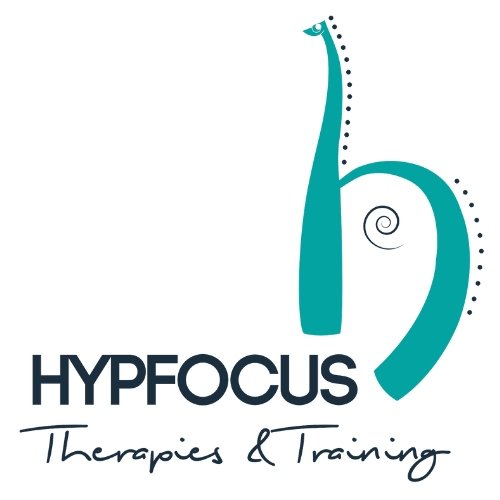The Silent Struggle: Women Navigating Menopause Without Support
Menopause, often called the "change of life," marks a significant transition in a woman's life. It's a natural biological process signalling the end of reproductive years. However, behind this seemingly simple phrase lies a complex array of physical, emotional, and psychological changes that can profoundly impact a woman's life. What adds to this complexity is the stark reality that many women face this transition without the support they need.
Menopause symptoms vary widely from woman to woman, ranging from hot flashes and night sweats to mood swings, fatigue, loss of libido, muscle aches, frozen shoulder, hair thinning, dry skin, sleep disruption, and cognitive changes. These symptoms aren't just inconveniences; they can disrupt daily life, strain relationships, and affect mental health if left unaddressed. While awareness about menopause has improved over the years, support systems often remain inadequate, leaving many women to navigate this journey alone.
One of the primary challenges women face during menopause is the lack of open dialogue and understanding in society. Unlike other life transitions, such as puberty or pregnancy, menopause is still shrouded in stigma and silence. Many women feel uncomfortable discussing their symptoms openly due to fear of judgment or embarrassment. This silence perpetuates a cycle of misinformation and misunderstanding, making it harder for women to seek the help and support they need.
Moreover, societal expectations often compound the struggles women face during menopause. The misconception that menopause signifies the end of a woman's vitality and productivity can lead to feelings of inadequacy and loss of identity. Women may feel pressured to conceal their symptoms and continue performing at the same level professionally and personally, further exacerbating their stress and discomfort. Often demands on women increase significantly as their kids grow up and their parents age and both generations require more and more care from the menopausal woman sandwiched between them, meanwhile she still often has to juggle her career and marriage.
Within healthcare systems, women's experiences with menopause are frequently overlooked or dismissed. Many healthcare providers lack adequate training in menopause management, leading to misdiagnosis or ineffective treatment options. So many women are sent away with anti-depressants which don’t address their real issue. GP’s are often still referring to studies which have been debunked, and so are reluctant to even discuss HRT options. Women may visit multiple doctors before finding one who listens to their concerns and offers appropriate support, adding to their frustration and sense of isolation.
In the absence of robust support systems, women often turn to self-management strategies to cope with menopause symptoms. While lifestyle changes such as diet modification, exercise, and stress reduction techniques can offer some relief, they may not address the full spectrum of symptoms experienced by women. Additionally, the burden of self-care falls heavily on the individual, adding to their already overwhelming responsibilities.
The impact of inadequate support for menopause extends beyond the individual woman to affect her relationships and broader community. Intimate relationships may suffer as communication breaks down due to the strain of unaddressed symptoms. Workplace dynamics may also be affected, with women experiencing decreased productivity and engagement due to their symptoms. Furthermore, the societal taboo surrounding menopause perpetuates ageism and sexism, reinforcing harmful stereotypes and inequalities. To add insult to injury women are now often afraid to speak up for themselves, even in the face of terrible treatment, for fear of being labelled a Karen – the latest way of silencing women.
Addressing the challenges women face during menopause requires a multifaceted approach that encompasses education, awareness, and support at various levels. Initiatives to destigmatise menopause and promote open dialogue are crucial in creating a supportive environment where women feel comfortable seeking help and sharing their experiences. Healthcare providers need specialised training in menopause management (if you can call something that currently impacts one third of the female population a speciality!) to offer personalised care tailored to each woman's needs.
Employers can play a role in supporting women during menopause by implementing policies that accommodate their symptoms, such as flexible work arrangements and access to supportive resources. Additionally, community organisations and support groups can provide valuable peer support and information-sharing opportunities for women navigating this transition.
Some progress has been made in the last couple of years, but we still have a long way to go. Ultimately, recognising and addressing the struggles women face during menopause is not just a matter of women's health but a reflection of societal attitudes towards ageing, sex, and well-being. By fostering empathy, understanding, and support, we can create a more inclusive and compassionate society where women can navigate menopause with dignity and resilience. It's time to break the silence and stand in solidarity with women as they navigate this significant life transition
How can Hypnotherapy and EFT Help with Menopause?
As described above menopause which can be overwhelming on its own, often coincides with major life changes that tend to increase women’s workloads. Our emotional, psychological, and physical resources become stretched to, and often beyond their limits. This in turn can result in some cracks appearing which allow old unresolved stuff from the past to start to surface as well. Hormonal shifts can lead to feelings of dissatisfaction and hasty impulsive decision-making.
As a hypnotherapist, I can help you manage anxiety, resolve and process emotions, deal with depression and learn to set reasonable expectations for yourself as well as feel less triggered by the unreasonable expectations of others. I’ll help you improve sleep, and I will help you build your resilience, expand your window of tolerance, and achieve the clarity needed for you to write this chapter of your life the way you want it to be written! I recommend you find a good GP who is up to date with the latest Menopause research (Jean Hailes has some recommendations). HRT is not now considered high-risk for most women as it once was.
Call me today or book your first session online here, let’s get started on improving your quality of life!

